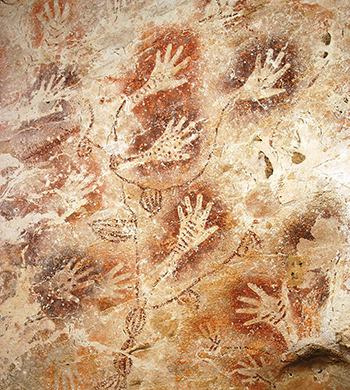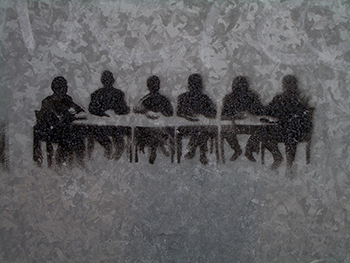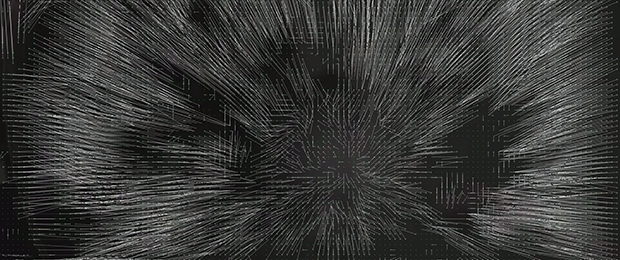Jenn Webb
Mary Yoko Brannen on ethnographic thinking and contexts of organizational cultures
The O'Reilly Radar Podcast: Organizational cultural identity, HELP systems, and the end of English as the lingua franca.
Subscribe to the O’Reilly Radar Podcast to track the technologies and people that will shape our world in the years to come.
In this week’s episode, I sit down with Mary Yoko Brannen, the president and CEO of CLIA Consulting, the Jarislowsky East Asia (Japan) chair at the Centre for Asia Pacific Initiatives, and a professor of international business and research director at the University of Victoria Gustavson School of Business.
Brannen is an expert in ethnomethodology and qualitative studies of complex cultural organizational phenomena. She spends a lot of time focused on how changing cultural contexts affect technology and how to leverage cultural identity in the global workplace. We unpack all that in this episode and talk about how her proposed “ethnographic thinking” approach can address language and culture gaps in the global marketplace.
Here are a few highlights from our chat:
I’m an organizational anthropologist. What does that mean? It means that, like anthropologists study far-away tribes, I study organizations as if they were tribes. I’m interested in organizational culture, and how organizational culture combines with national cultural differences, as well as occupational cultural differences, and how people can integrate those and work together.
Aaron Irizarry on Nasdaq’s journey to embrace product design
The O'Reilly Radar Podcast: Getting a seat at the table is one thing; understanding what to do with it is way more important.
Subscribe to the O’Reilly Radar Podcast to track the technologies and people that will shape our world in the years to come.
In this week’s episode of the Radar Podcast, O’Reilly’s Mary Treseler chats with Aaron Irizarry, director of user experience for Nasdaq product design, about Nasdaq’s journey to become a design-driven organization.
Irizarry also talks about the best ways to have solid conversations about the designs you’re working on, and why getting a seat at the proverbial table isn’t the endgame. He’ll be speaking about these topics and more at the O’Reilly Design Conference, January 19-22, 2016, in San Francisco.
Here are a few snippets from their conversation:
It’s really interesting to see an organization that didn’t have a product design team as of, what, 2011, I believe, see the need for that, bring someone in, hire them to establish a team, which is my boss Chris, and then see just the transition and the growth within the company, and how they embraced product design.
The more we delivered, the more we built equity within the company to be able to kind of have more of a say. … What has really helped us is that we didn’t just focus on getting a seat at the table. We focused on what to do when we have that seat, and how we keep that seat and bring others to the table as well. Read more…
The first rule of management: Resist the urge to manage
The O'Reilly Radar Podcast: Ben Collins-Sussman and Brian Fitzpatrick on leadership, teams, and culture.
Subscribe to the O’Reilly Radar Podcast to track the technologies and people that will shape our world in the years to come.
In this week’s Radar Podcast, I sit down with Google engineering site lead Ben Collins-Sussman and Tock founder and CTO Brian Fitzpatrick.
The two have just released a new book, Debugging Teams, a follow-up to their earlier book, Team Geek. We talk about the new edition, how managing is a lot like being a psychotherapist, and how all their great advice plays out in their own lives. Enjoy the show.
Here are a few snippets from our conversation:
Collins-Sussman: The first rule of management is resist the urge to manage. … a manager’s main job is not to bark commands, but to actually aid the team and provide cover, do whatever it takes to remove roadblocks and make them more efficient. Really, being a manager is about getting out of the way and trying to figure out what they need.
Fitzpatrick: Another thing is, when you become a leader, people will come to you and ask questions. They’ll come to you and ask you for advice, and the best thing you can do is ask them questions right back. It’s not being dishonest, or disingenuous, or evasive … If you ask them questions like, ‘What do you mean by this?’, or ‘What are you thinking of?’, or ‘What do you like to do?’ or, ‘How do you feel about this?’, you can gently guide them a little bit by the questions you ask, but really make them think. After a few minutes of questioning, they’ll come up with their own answer.
Music and tech are not enemies
The O'Reilly Radar Podcast: Zoe Keating on retaining control, making money, and remaining optimistic in the music industry.
Subscribe to the O’Reilly Radar Podcast to track the technologies and people that will shape our world in the years to come.
In this week’s episode of the Radar Podcast, author and entrepreneur Alistair Croll, who also co-chairs our Strata + Hadoop World conference, talks with cellist, composer, and performer Zoe Keating.
Keating talks about why she chooses to retain total control over her music as opposed to signing with a label, she shares her thoughts on the changing landscape of how artists get paid, and she talks about why she’s optimistic about the future of music.
Here are a few highlights from their conversation:
The digital tracking of music isn’t necessarily fully formed yet. I think we’re actually still in the infancy of what the industry is going to be like. We’ve had a great decade of disruption that has benefited artists like me and Amanda [Palmer]. I’m not sure that she or I could have had the kinds of careers we’ve had without this thing that has been bad for some other artists. I don’t think that things are fully realized yet. It’s still the case that the majority of the money is going to people other than the content creators.
I’m the only artist on the face of the earth who’s never made a video.
It’s almost like we need music futurists to try to envision the future of what might your life be like. How might it work? How might you make money? Just think about it in a free-form way without all the emotion attached to it, because often you’ve probably experienced numerous music conferences where it devolves into name calling.
Mediating the relationship between society and technology
The O'Reilly Radar Podcast: Suw Charman-Anderson on Ada Lovelace Day, STEM, and the state of social media.
Subscribe to the O’Reilly Radar Podcast to track the technologies and people that will shape our world in the years to come.
In this week’s episode, O’Reilly’s Mac Slocum chats with Suw Charman-Anderson, journalist, consultant, and founder of Ada Lovelace Day. Their wide-ranging conversation touches on why Charman-Anderson founded Ada Lovelace Day and why it has been so successful. She also talks about the state of social media, and the past, present, and future of blogging.
Here are a few highlights from their chat:
The first Ada Lovelace Day was a day of blogging about women in tech. It was the 24th of March in 2009, which was a completely random date I had picked because I was impatient and I wanted it to happen soon. It just really took off immediately. I was quite astonished, actually. I thought it would be me and a couple of mates and we’d have a little blog thing going and that would be that. In the end, it was huge. … I think it really hit a nerve. I think there were a lot of women who were angry about the state of play and about the issues around conferences.
The main problem, not just for me but for other organizations dealing with women in STEM, is funding.
I’m a big fan of cross-pollination between different disciplines. I think there are lessons there as well for technology. Technology moves very fast, but we need to think long term about the impacts on society. We all need to be a part of that debate. That doesn’t happen enough. We tend to be very focused on who’s just done an IPO, and who’s just launched, what the new Apple device is, and all the rest of it. We need to, as a broad community, also be thinking about the long-term impacts societally, in terms of how we are bringing in different points of view. This is where diversity becomes important because different people have different experiences of the world. That should inform a longer debate on how we want to mediate the relationship between society and technology. Read more…
Signals from the 2015 O’Reilly Velocity Conference in New York
Key insights from DevOps, Web operations, and performance.
People from across the Web operations and performance worlds are coming together this week for the 2015 O’Reilly Velocity Conference in New York. Below, we’ve assembled notable keynotes, interviews, and insights from the event.
Diversity and bias
Bryan Liles, who works on strategic initiatives for DigitalOcean, gave a great thought-provoking talk on bias and diversity. “If your company is creating a diversity plan and you’ve actually gone and counted people,” Liles said, “you’ve already lost.”
Movement data is going to transform everything
The O'Reilly Radar Podcast: Rajiv Maheswaran on the science of moving dots, and Claudia Perlich on big data in advertising.
Subscribe to the O’Reilly Radar Podcast to track the technologies and people that will shape our world in the years to come.
In this week’s Radar Podcast episode, O’Reilly’s Mac Slocum chats with Rajiv Maheswaran, CEO of Second Spectrum. Maheswaran talks about machine learning applications in sports, the importance of context in measuring stats, and the future of real-time, in-game analytics.
Here are some highlights from their chat:
There’s a lot of parts of the game of basketball — pick and rolls, dribble hand-offs — that coaches really care about, about analyzing how it works on offense, how to guard them. Before big data and machine learning, people basically watched the games and marked them. It turns out that people are pretty bad at marking them accurately, and they also miss a ton of stuff. Right now, machine learning tells coaches, ‘This is how many pick and rolls these two players have had over the course of the season, how often they do all the different variations, what they’re good at, what they’re bad at.’ Coaches can really find tendencies that can help them play offense, play defense, far more efficiently, based off of machine learning.
What we’re doing is having the machine match human intuition. If I’m watching a game, I know that the shot is harder if I’m farther away, if I have multiple defenders, if they’re close, if they’re closing in on me, if I’m dribbling, the type of shot I’m taking. As a human, I watch this and I have an intuition about it. Now, by giving all that data to the machine, it can make a predictor that actually matches our intuition, and goes beyond it because it can put a number onto what our intuition tells us.
Transforming the experience of sound and music
The O'Reilly Radar Podcast: Poppy Crum on sensory perception, algorithm design, and fundamental changes in music.
Subscribe to the O’Reilly Radar Podcast to track the technologies and people that will shape our world in the years to come.
In this week’s Radar Podcast, author and entrepreneur Alistair Croll, who also co-chairs our Strata + Hadoop World conference, talks music science with Poppy Crum, senior principal scientist at Dolby Laboratories and a consulting professor at Stanford.
Their wide-ranging discussion covers fundamental changes in the music industry, sensory perception and algorithm design, and what the future of music might look like.
Here are a few snippets from their conversation:
As we see transformations to the next stage of how we consume content, things that are becoming very prevalent are more and more metadata. More and more information about the sounds, information about personalization. You aren’t given the answer; you’re given information and opportunities to have a closer tie to the artist’s intent because more information about the artist’s intent can be captured so that when you actually experience the sound or the music, that information is there to dictate how it deals with your personal environment.
Today, Dolby Atmos and other technologies have transformed [how we experience sound in the cinema] quite substantially, where if I’m a mixer, I can take a sound and can mix now, say, instead of seven channels, I can mix 128 sounds, and each one of those sounds has a data stream associated with it. That data stream carries information. It’s not going to a particular set of speakers; it has x, y, z coordinates, it has information about the diffusivity of that sound. Read more…
Training in the big data ecosystem
The O'Reilly Radar Podcast: Paco Nathan and Jesse Anderson on the evolution of the data training landscape.
Subscribe to the O’Reilly Radar Podcast to track the technologies and people that will shape our world in the years to come.
 In this week’s Radar Podcast, O’Reilly’s Ben Lorica talks to Paco Nathan, director of O’Reilly Learning, and Jesse Anderson, technical trainer and creative engineer at Confluent.
In this week’s Radar Podcast, O’Reilly’s Ben Lorica talks to Paco Nathan, director of O’Reilly Learning, and Jesse Anderson, technical trainer and creative engineer at Confluent.
Their discussion focuses on the training landscape in the big data ecosystem, their teaching techniques and particular content they choose, and a look at some expected future trends.
Here are a few snippets from their chat:
Training vs PowerPoint slides
Anderson: “Often, when you have a startup and somebody says, ‘Well, we need some training,’ what will usually happen is one of the software developers will say, ‘OK, I’ve done some training in the past and I’ll put together some PowerPoints.’ The differences between a training thing and doing some PowerPoints, like at a meetup, is that a training actually has to have hands-on exercises. It has to have artifacts that you use right there in class. You actually need to think through, these are concepts, these are things that the person will need to be successful in that project. It really takes a lot of time and it takes some serious expertise and some experience in how to do that.”
Nathan: “Early on, you would get some committer to go out and do a meetup, maybe talk about an extension to an API or whatever they were working on directly. If there was a client firm that came up and needed training, then they’d peel off somebody. As it evolved, that really didn’t work. That kind of model doesn’t scale. The other thing too is, you really do need people who understand instructional design, who really understand how to manage a classroom. Especially when it gets to any size, it’s not just a afterthought for an engineer to handle.” Read more…
Big data and the music industry: Where’s the romance?
The O'Reilly Radar Podcast: Amanda Palmer on music industry survival techniques.
Subscribe to the O’Reilly Radar Podcast to track the technologies and people that will shape our world in the years to come.
In this week’s Radar Podcast episode, author and entrepreneur Alistair Croll talks with musician and performer Amanda Palmer about the current state of the music industry and how she’s navigating her way through new platforms, crowdfunding, and an ever-increasing amount of data.
Here are a few snippets from their chat:
I’ve always approached every Internet platform and every Internet tool with the suspicion that it may not last, and that actually what’s very important is that the art and the relationships I’m building are authentic enough that even if the Internet disappeared tomorrow, or even if Facebook collapsed, or Twitter collapsed, or what have you, or all of our email went down, I’m not so reliant on the Internet itself that I couldn’t somehow piece things together.
I kind of had to come to terms with the fact that the machine still feeds what people listen to, whether it’s radio, or what gets licensed to films, or what music is playing when you walk into a shop. The ability of an artist to actually really get over that mountain, if you decide not to play the game, your hands are still pretty tied.
[Zoe Keating] was saying that an album for her is, she wants to make it all at one time and make one big statement and put it out, kind of like you would put out an opera. I’m deliberately trying to detach myself from that, and just say, ‘I wrote a song. I have this Patreon. I’m just going to put it out.’ At some point, maybe I will collect everything together so the mainstream media people of the world can have an Amanda Palmer record. But maybe that format really is dying. Read more…








